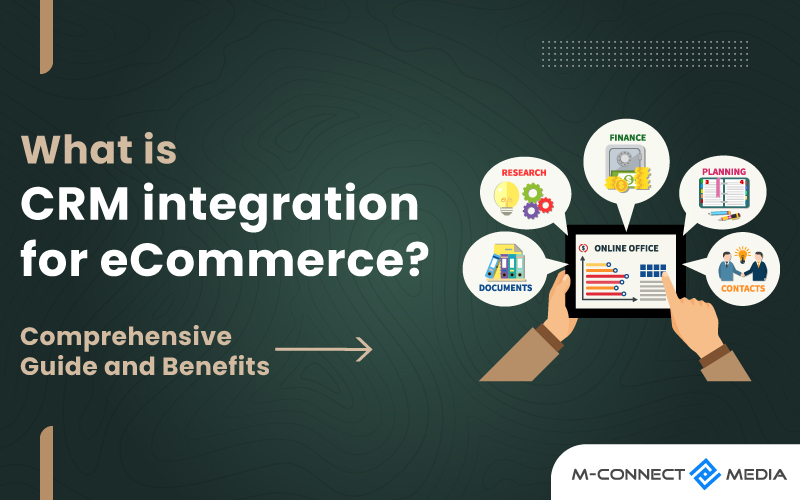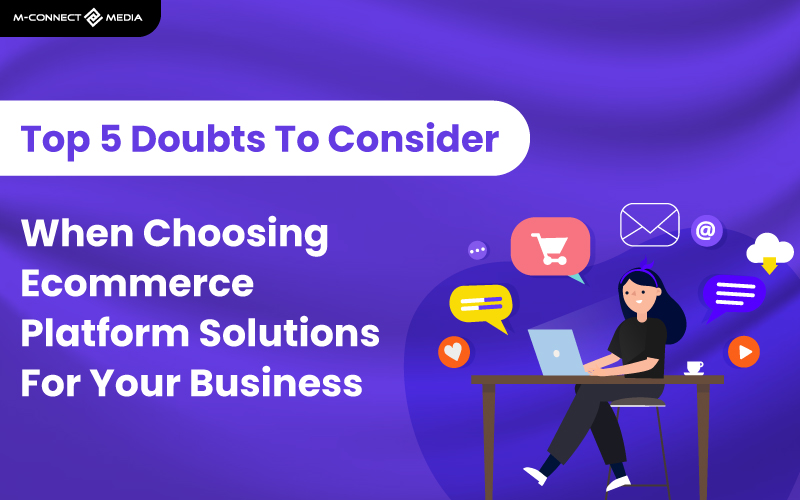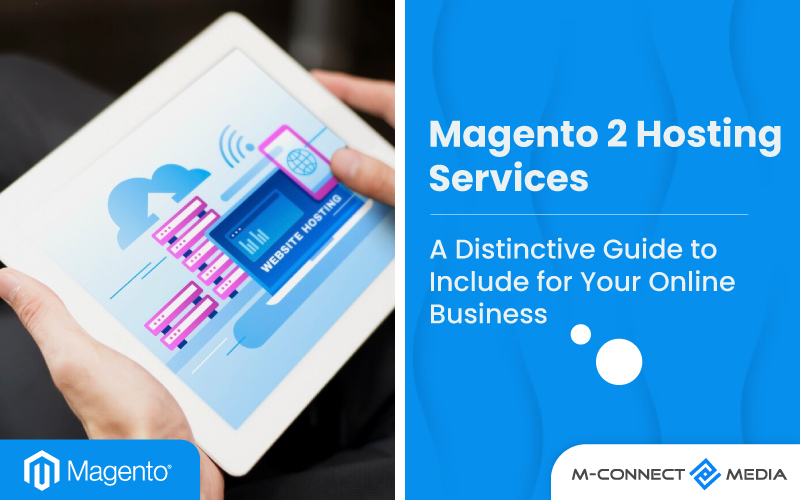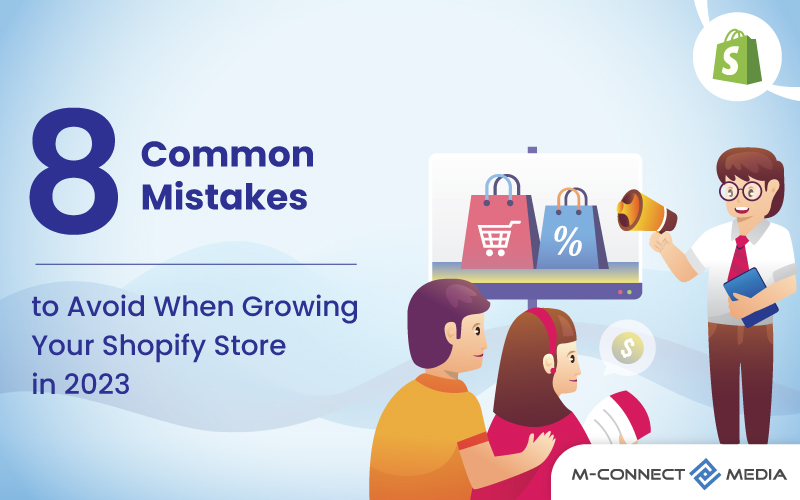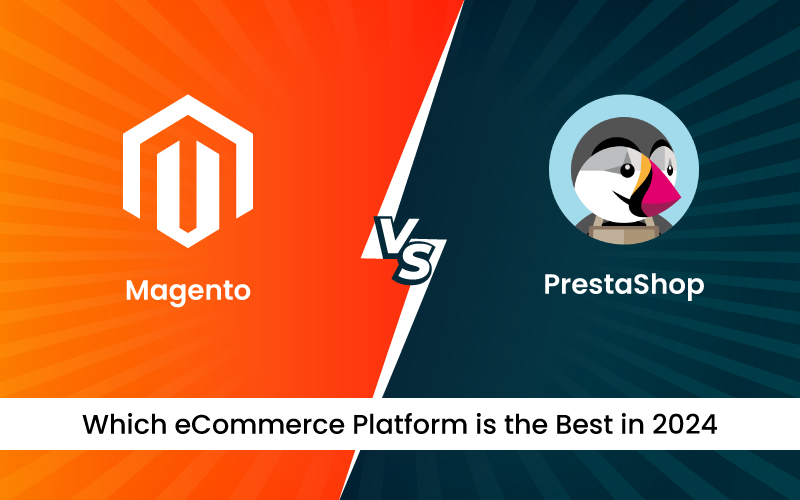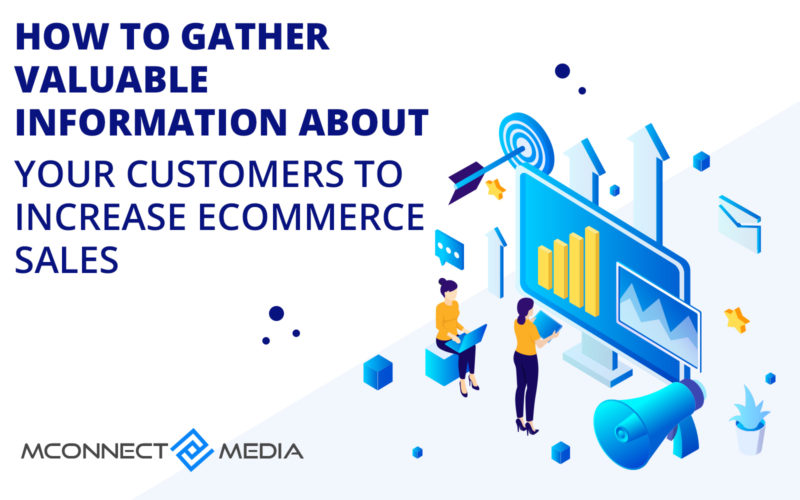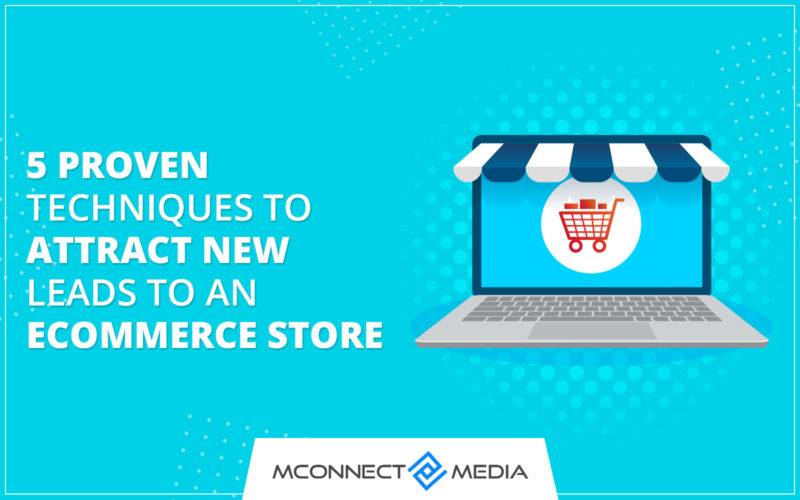When you automate the connection between your CRM and online store, you’re not only providing personalized customer experiences but also gaining more time to concentrate on crucial responsibilities.
CRM full form Customer Relationship Management systems are critical for any business, especially eCommerce companies. They assist in converting customers into loyal customers who will continue to purchase things for years to come.
CRM systems are beneficial to both customers and enterprises. By providing exceptional customer service and maintaining client connections, powerful CRM eCommerce integration services may help your online business develop and thrive.
In this article, we will go over all you need to know about eCommerce CRM, as well as CRM integrations with eCommerce that you may look into for business to maximise the value gained from client interactions.
Also Read: Future of E-commerce with Magento Open Source: What to Expect
What Is CRM Integration for Ecommerce?
CRM integration is the process of linking third-party systems in your business to CRM. The connectivity allows continuous flow of data between products and other systems, like marketing automation, accounting software, or enterprise resource planning software.
The CRM is the process of managing all customer-related sales, marketing, customer service, and corporate data. Larger companies may need to integrate a CRM platform with a range of other systems, including those are equally or more advanced.
CRM integration is the process of connecting CRM to other systems like email, finance, manufacturing management, or inventory management software. The CRM software can serve as focal point for all client data, from the first point of contact to recent transaction.
The CRM system connections entail the use of APIs (apps programming interfaces). CRM integrations carried out with the help of a monitor and control project as a “integration platform as a service” (iPaaS), which allows information to be shared across third-party systems.
Moreover, CRM integration allows you to integrate and organize client data from numerous sources. This provides you with a 360-degree perspective of your clients and allows you to improve customer experience.
Why CRM Integration for Ecommerce is Necessary?
CRM systems used to gather, store, and analyze data from online customers. Anybody can function as a customer, buyer, partner, or provider of products in this situation.
When the market flooded with goods/services of similar price and quality, and the expenses per lead and purchase are rising by the day, a competent integrated with CRM helps to keep customers and enhance their loyalty and LTV.
CRM provides the following benefits to business owners:
- Real-time data (sales, customers) for quick decision making
- A well-managed customer experience might be beneficial when expanding into new markets.
- As worldwide online marketplace expands into the local market, you will gain a competitive edge
That is how CRM improves the eCommerce workflow and customer experience.
Also Read: FAQs Must Know about Magento 2 For E-commerce Store Owners
Key Features of CRM Integration for eCommerce
eCommerce CRM software connects online business’s different touch points and enables for a consistent strategy. When deciding on CRMs for eCommerce site, consider what features you want in program to assist you accomplish business gains ranging from increased customer happiness to greater conversion rates.
The following are some of the important Features to look for in the finest eCommerce CRMs:
Personalized Email Marketing
A CRM system designed specifically for company allows personnel to send emails to clients with intriguing offers or recommendations. As a consequence, you may direct the consumers’ attention to some essential items.
Using client relationship management software, you can send email campaigns while maintaining client personalization. Customer data is used in email templates by the CRM to maintain communication relevant, tailored, and exciting.
Data Analytics
The data analytics application tracks all actions that consumers perform on your ecommerce website in real time. This means you’ll be able to respond rapidly to their changing demands by giving discounts on things that don’t sell well and boosting supplies of those that do.
These data analytics assist in adjusting strategy and focusing on more profitable consumer groupings. You also learn where your company stands and what you can do to improve consumer experiences.
Workflow Automation
CRM offers automation capabilities across departments ranging from customer service to marketing. For CRM examples, You can set up automated messaging and send automated emails with reminders to customers leaving the store without completing a purchase.
CRM Integrating with eCommerce may automate the whole workflow from order placing to fulfilment, reducing mistakes and saving time. This enables businesses to provide a unified customer experience from the time an order is placed until it is delivered successfully.
Chatbots
Chatbots leverage CRM data to provide a tailored experience to clients seeking assistance and, when necessary, transfer the chat to human agents. They are useful for transaction messaging, Facebook messaging, navigation suggestions, and 24-hour availability.
This component of CRM is beneficial to eCommerce companies since customers can address small issues, allowing you to save significantly on customer care expenditures. Chatbots will be beneficial for online shops with a high volume of clients.
Order Tracking
Businesses may manage shipment and tracking information from their CRM with the link, boosting transparency and communication with customers by providing real-time shipping updates. It supports businesses in managing delivery schedules to improve the overall customer experience.
Real-time inventory updates allow for inventory management, and shipment and tracking information may be controlled directly from the CRM, boosting customer experiences. The obtained data may be used to deliver tailored offers to clients.
Also Read: Selling Digital Products & Downloads: Everything You Need to Know
Types of CRM to Integrate with eCommerce
There are several types of CRM in eCommerce, and the one that is appropriate for you is determined by company criteria such as size, complexity, and goals. Finally, all CRMs strive to help you better understand and engage with your consumers.
However, CRM in eCommerce may be generically categorized into three types.
1. Operational
This sort of CRM aids in the automation of sales, marketing, and customer care operations, resulting in improved customer connections. They provide solutions to assist you in better visualising and managing client journeys.
Operational CRM systems include automation capabilities in sales, marketing, and services to minimise workers’ burden. This would allow people to devote more time to personal and creative parts of profession, and activities that require a human touch.
2. Analytical
Analytical CRMs strive to improve customer experiences by gathering data. Huge amounts of data may be collected easily thanks to digital technology and solutions. These CRM systems feature capabilities that aid in data analysis and conversion into something beneficial for the organization.
An eCommerce company may utilize analytical CRM to analyze customer data in order to get insights into consumer habits and behavior and stay on top of current trends. With this, you may learn how to increase sales, boost client retention, and deal with regular customer complaints and barriers.
3. Collaborative
These CRM systems are designed to accelerate information sharing inside the organization. Big eCommerce stores have many teams that rely on data from operational areas. Collaboration CRMs will ensure that all teams, regardless of channel or department, have real-time access to the same customer data.
Support and technical teams will collaborate to respond to customer complaints as soon as possible. This integration saves clients from having to repeat every time they speak to a new individual. Each person may access a record of client encounters to learn the pertinent data and better serve them.
Benefits of Using CRM Integration for eCommerce
If you want to expand business, you might be wondering what a CRM system can accomplish for you. Using a CRM for eCommerce means that customer analysis is managed properly, allowing you to thrive in this competitive business.
The following section outlines the key benefits of CRM integration for you eCommerce business:
Improve Customer Experience
CRM integration for eCommerce can help you collect client data quickly and generate rich profiles that represent their demands. A unified CRM system provides a holistic picture of your customers, assisting you in increasing sales and retention rates.
Integrating CRM system might help you deliver customized and efficient customer care. This is significant for eCommerce sites since it helps you to better know your clients and deliver a more tailored purchasing experience for them.
Improve Efficiency
Automation is critical for internal efficiency, but integrating data into a single system also increases productivity. Employees are not required to log in to and switch between many systems. And critical information is easily accessible.
As a result, duties like monitoring and analyzing customer data may be quickly and on a wider scale. Consolidated access to well-organized data not only decreases employee effort but also promotes transparency and efficient communication inside the organization.
Increase Sales Management
An integrated CRM system will automatically retain data on new leads from your website and social media platforms, allowing sales staff to follow up, validate the lead, and gain a better understanding of their sales pipelines.
The CRM will be incredibly valuable for both direct and indirect marketing and will be an excellent tool for your sales staff. Sales staff may examine and repurpose email templates and scripts for cold calls by using the CRM platform’s file-sharing capability.
Increase Collaboration
Team cooperation and communication may improved with integrated customer management solutions. You may combine CRM with project management solutions, allowing sales and marketing teams to collaborate with growth and support teams.
Marketing teams may automatically route new leads to the sales team for follow-up. Similarly, sales and inventory teams may exchange forecast data to optimize just-in-time inventory management.
Some Difficulties with CRM Integration for e Commerce
Getting the most out of your CRM integration takes careful planning and staff buy-in. The entire business must commit to putting the customer first and using data to inform strategy.
While CRM integration has tremendous benefits, it also has significant drawbacks. Following are some of the most significant challenges in CRM integration:
- CRM integration requires use of right tools and platforms in order to ensure consistent operation, safe transmission of sensitive information, proper upgrades in CRM marketing automation software, and so on.
- The CRM systems can vary substantially across businesses in terms of technology, transmission protocols, authentication, digital certificates, and other factors.
- This integration is determined by how closely CRM and marketing automation firms respect one another’s standards.
- CRM connectivity is sometimes just one link in a long chain of corporate software connections.
Finishing Up
CRM integration in e-commerce aids in cost-effective optimization of activities linked with consumers, suppliers, and purchasers. Small businesses and merchants may give industry-leading customer experiences on par with bigger and better-capitalized companies with CRM eCommerce integration.
Having a CRM system for eCommerce firm has several benefits. Of course, you must decide whether company need a ready-made or customized solution. Before selecting a suitable variation, you should carefully consider your aims and requirements.
If you’re seeking for developers who can handle such a project, you’ve already found them in M-connect Media. To obtain our eCommerce software development services, please contact us. Let’s go into the intricacies of your retail business concept!
FAQs for CRM Integration for Ecommerce:
- How is CRM used in ecommerce?
Integrating a CRM system into your ecommerce site allows you to collect data on all client interactions on your website and social media platforms in order to instantly deliver customized offers, access current customer information, and follow each customer’s trip through the sales funnel.
- Is it crucial to integrate CRM with ecommerce platform?
Yes. A CRM integration for ecommerce unleashes the potential of all customer data recorded on website, including web activity for each site visitor. You may get a 360-degree perspective of consumer by merging this data with web analytics, marketing analytics, and sales analytics.
- Which is the best CRM for ecommerce?
Check out the below for a fast, side-by-side comparison of our top five preferred systems to help you select the best CRM software for ecommerce:
- Salesforce CRM – The most effective CRM platform for B2B and B2C ecommerce firms and online retailers.
- Active Campaign – The best option for lead tracking and marketing automation.
- HubSpot CRM – The best free CRM for contact management, deal management, task tracking, and engagement alerts.


